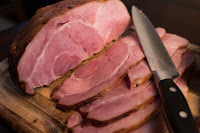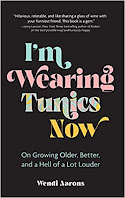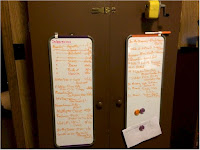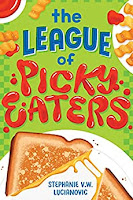In September I posted some information on changes coming to Medium's partnership/payment program. Otherwise, it looks as if I haven't done an update on my publishing experiences on Medium since March. I did publish a couple more humor pieces there this summer, which deserve their own post at some point. However, today's subject is the Medium Writers Challenge, which took place in August with winners and honorable mention essays announced in the last week or so.
In short, the challenge was a contest. There were four writing prompts, which might also be considered categories. I entered two essays, one for each of two prompts. Won nothing.
Generally Speaking
However, this was a positive experience because:
- I completed an essay I'd started a couple of years ago and revised a second one. Finishing things is always good.
- I did this work in a timely fashion.
- My work was published at two more Medium publications, which means that I now have a connection with them and can submit to them again.
- Taking part in the challenge got me two more essays on Medium, and, supposedly, the more you can publish there the more of a following you can build up within that closed community.
- While Medium is a closed community, every time I publish there I can promote the work to the wider world and a few more readers may learn what I do.
What Have You Learned, Gail?
I don't know if I actually learned anything, but I do have some theories about what was going on with the two prompts I submitted for and what the winners and honorable mention writers did that I didn't.
Were The Judges Looking For A Specific Length? There was a minimum word-length--500 words-- for these prompts. I did meet that. But the winners and honorable mention essays I read were much, much longer. Medium keeps track of how long it takes to read the materials published there. My entry for the Death prompt, Enough, was a four-minute read. Keeper of the Place by Randi Ragan, the winner of the Death prompt, which was also the over all winner, was a fifteen-minute read. My entry for the Space prompt, What We Did There, was also a four-minute read. The winner of that prompt, The Space Between My Fingers by Meera Vijayann, came in at twelve minutes. A lot of the honorable mentions I read for the Death prompt were lengthy. For the Space prompt, not so much.
Over the last couple of years, I've become interested in writing and reading both flash fiction and nonfiction. I like tight writing, as both a writer and a reader. With nonfiction and essays, I really want a feel in the first paragraph or two of what I'm dealing with. I'm definitely not a fan of digressions. Or lengthy descriptions.
But there may be a school of thought that argues more material is needed to support and expand upon thoughts. Five hundred words and four minutes of reading may not be enough elaboration. That may have been the thinking with this year's judges, particularly with the Death prompt.
Were The Judges Looking For Specific Subject Matter? That definitely seemed to be the case with the Death essays I was able to read. Or, I should say, skim in most cases, because, you know, they were a little long for me, and there were a lot of them.
The Death prompt stated "People die, of course, but so do other things. Ideals. Relationships.
Jobs. Life phases. Pieces of who we once were. A death isn’t always
inherently sad, either; sometimes, it’s a positive step, freeing us from
what was weighing us down or allowing us to move forward. Illusions can
die. Grudges. Bad habits. Tell us about a death you’ve experienced, for
better or worse, and how you marked the loss — whether it was with
mourning or celebration."
The bulk of the finalists that I, as I said, skimmed in this category dealt with the traditional process of someone dying or a survivor dealing with a death. I cannot say that was the case for all of them, because I had I had to stop reading. It was becoming too disturbing. This is supposed to have been the prompt that drew the most entries. It must have been brutal for the judges to read so many of them.
 |
Karo Kujanpaa
|
My
own essay was more of a celebration of someone who had passed, of her family, and of how we will move on without her. There was a lot less pain and suffering than I was seeing in the essays that did well. So putting aside discussion of quality, my essay may not have fit the prompt the way the judges interpreted it.
The Space prompt was far vaguer. "Whether we’re letting our imaginations run wild or focusing on what’s in
front of us, our day-to-day lives are defined by space: living space,
personal space, outer space. We make space. We claim space. We practice
social distancing. We turn spaces into homes, into communities, into
refuges, and we forge relationships with others and ourselves within
those spaces. We wonder, with varying degrees of skepticism and belief,
about the beings that occupy the space beyond our planet. However you
define it, tell us a story about a role space has played in your life."
 |
Camilla Sanabria
|
I really can't say I saw a recurring theme in the Space prompt entries. Topics were all over the place, which is probably a good thing. I can't come up with a theory from reading the ones I read that suggests why my essay didn't fit the prompt for the judges. I can say, though, that
my entry has received the fewest views and reads of anything I've published at
Medium. The space it deals with is a
taekwondo dojang. It's not unusual to hear of people trying martial arts and totally embracing it. It becomes part of their lives and their identities. However, martial arts people may be too small a subset of the world. So, again, putting aside discussion of quality, my Space essay may not attract a big enough reader group, or judge group.
Some Thoughts From Someone Else
Elizabeth Dawber has published, on Medium, a list of all the winners and the honorable mention writers for this challenge. Her article includes an analysis that addresses, among other things, the issue of the length of the winners.
Another New Medium Experience
Today I'm trying something new at Medium, I'm going to republish this post there. The point is to both encourage new readers for Original Content and to create more content for me at Medium.
So I'll see how that works, and if it is worth doing again.


































